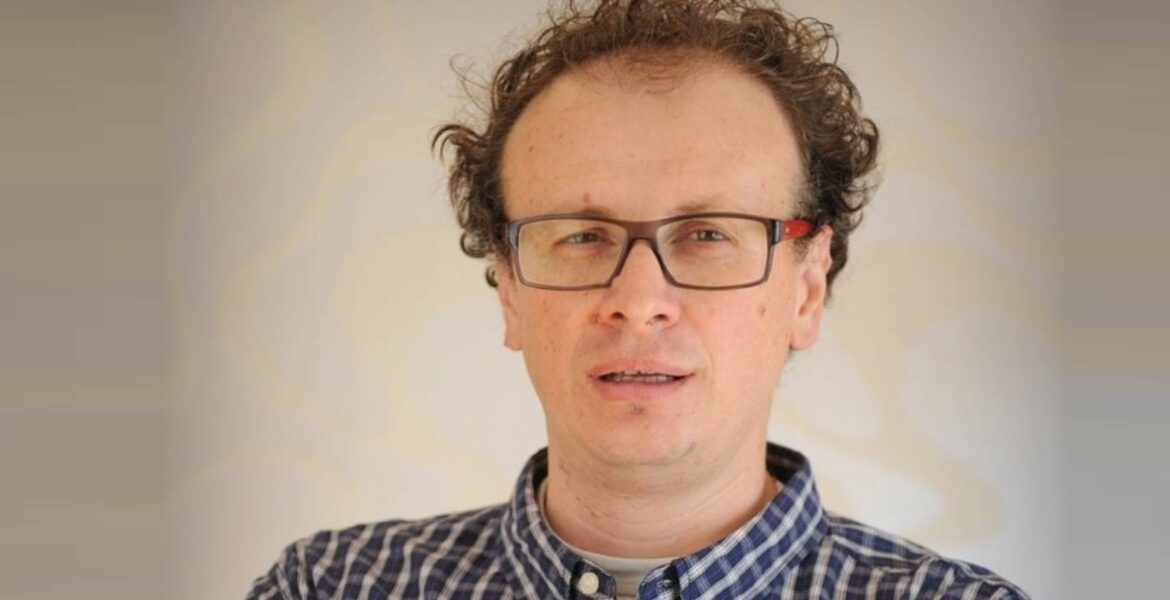AUTHOR: SRĐAN PUHALO
Photo credits: Zlatko Popović
“Dealing with the past relates to processes of confronting a violent past, meaning violence towards against all victims regardless of their ethnic, political or other affiliation. Dealing with the past occurs in any particular society on different levels: personal confrontation, i.e. the processing of memories and questioning of one’s own responsibility for violence; the level of dealing with the past in the community (between friends and relatives, neighbors, fellow villagers, fellow citizens…); at the institutional level (the role of international organizations, states, local governments, political parties, religious groups…); at the level of society as a whole, that is, the public as a group of citizens who are focusing their attention on war and other events of the past.”[1]
When we analyze this definition of dealing with the past in the context of Bosnia and Herzegovina, we immediately encounter several problems. First of all, we can say that, at state level, there is no process of dealing with the past, and any processes would be divided along ethnic lines. In practice, this means that Serbs, Croats and Bosniaks speak a lot about their own victims and the crimes of other people, whilst relativizing, minimizing and silencing any talk of the crimes committed by their own people, and turning their own war criminals into heroes. With that kind of relationship towards the victims and towards violence, the state institutions, the politicians, the political parties, and religious communities all play an important role because they are doing next to nothing to open this process.We can safely say that they are the frontrunners in preventing, hollowing-out and inhibiting those processes. Even the court verdicts have no great effect, because the politicians and the institutions that they control perceive these verdicts as political. Thus, acknowledging one’s own responsibility for the crimes committed is not something which is allowed, let alone publicly affirmed.
If political centers of power have no desire to begin the process of dealing with the past, then that process is left to a small number of NGOs and an even smaller number of individuals. Of course, these enthusiasts cannot work on that process uninterrupted, as they are in a constant conflict with ethnic narratives. This is not a fair struggle, as NGOs are dependent on project grants, which are limited by time, money, the interest of donors, and the type and amount of media at their disposal, while domestic politicians have state budgets, and public services and institutions working for them.
How social media works
With the emergence of the internet, information has become easily accessible to all, but so has partial information and disinformation. Then, perhaps we could say that discerning relevant from irrelevant information is the biggest challenge for individuals today.
Not only has information become easy to access, it also has become easy to spread, and social networking sites are the ideal channels of communication. The problem is that information on social media spreads not because it is accurate and verified, but because it is more attractive to a certain group of people.
Aside from enabling the spread of information, social networking sites have made the situation even more complicated by allowing people to interact (comment) on this information, the consequence of which is that an expert’s comment is deemed as valid as the comment of a layman or someone who knowingly and intentionally lies.
Social networking sites have bots and trolls, whose goal is to relativize certain information with their comments and redirect the conversation. One strategy is to label individuals, whose public engagement they dislike, as foreign mercenaries or traitors and thus discredit their opinions.
How does this work in practice?
In late December 2018, I published a blog “The Dark Secret of Kotor Varoš”[2] in which I wrote about the Bosniaks who were taken by the Republic of Srpska army and police in 1992 to an unknown location, and whose bodies have still not been found today.
That blog reached 26,143 people and had 442 likes, 96 comments and 83 shares, but for the purpose of the article, the comments are most important. What first strikes you is that you can easily determine the ethnicity of the commentator based on the comments.
As the blog is about Bosniak victims, Bosniaks refer positively to it. Some of them post photos of missing persons, others write about the fate of the missing, some praise me as the author. Not one comment in any way challenged my writing.
On the other hand, Serbs reacted strongly against the article. We can divide their comments into two: responses to the comments made by Bosniaks, and comments addressed to me. Among the responses, we could read that it was Bosniak propaganda and that these people were not murdered but are living abroad somewhere. Some asked for a list of names of the murdered Bosniaks since they do not trust the institutions of the Federation of Bosnia and Herzegovina. Inevitably, comments came back to the story of the crimes committed against Serbs in Kotor Varoš, for which nobody has been held accountable.
Serbs who addressed me with their comments, stated that Kotor Varoš, today, is a multi-ethnic community, in which all three ethnic groups live harmoniously, and I am destroying that harmony. It was brought to my attention that the Bosnians started it, and that it is their own fault for getting killed. There was mention of the village of Serdari, where Serbs were murdered, for which nobody has been held responsible. They turned my attention to the killing of Serbian children by snipers, without stating where or when that happened. In the end, I was accused of being paid to write such a blog.
When we look at the comments that ensued, we can see that my blog did not foster a constructive dialogue between Bosniaks and Serbs. There was no empathy shown towards the victims, and the bodies of the murdered Bosniaks have still not been found.
Such is the influence of social media in dealing with the past in Bosnia and Herzegovina.
Srđan Puhalo was born in 1972. He is a psychologist and public opinion researcher. He graduated from the Electrical Engineering Secondary School in Sarajevo and from the Department of Psychology at the Faculty of Philosophy in Belgrade. He completed his master’s degree in Social Psychology in Banja Luka. Srđan currently lives and works in Banja Luka. He uses social media for making politically incorrect statements in the hope of encouraging people to think about what he writes and says.
[1] Kadrov, L., Lalić, D. and Teršelić, V. (2010) Dealing with the past in Croatia: attitudes and opinions of actors and the public in the aftermath of war [Suočavanje s prošlošću u Hrvatskoj: 305 Stavovi i mišljenja aktera i javnosti u poraću]. Documenta: Zagreb.
[2] http://www.frontal.ba/blogovi/blog/61328/mracna-tajna-kotor-varosi?fbclid=IwAR0ZNEdhZ2VEr6l4ZFTO05O8_ABcT1eakni5N4Tl19vl0fsl_lvRmTkM_24




